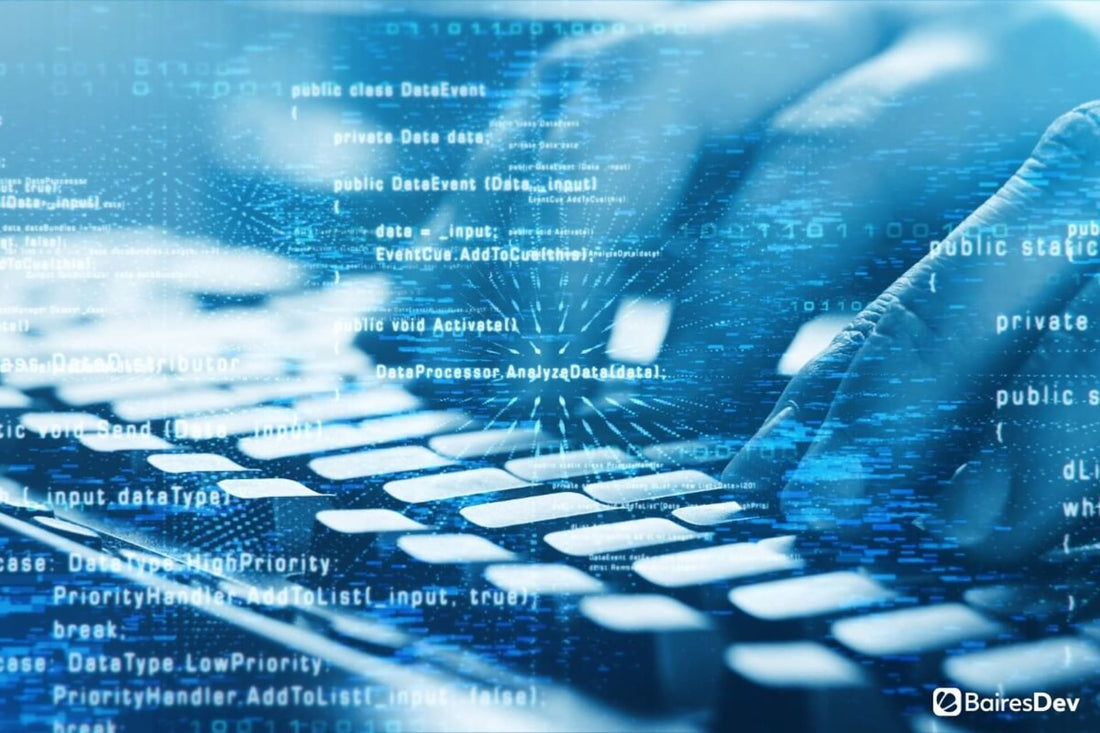AI is everywhere, so the question arises: how is AI shaping software development? Where are we going?

Bataresh and collaborators , artificial intelligence has played a significant role in the SDLC since at least 1975. Every stage of software engineering (requirements, design, development, testing, release, and maintenance) has something to gain from artificial intelligence.
Even no-code solutions like Bubble will reap the benefits of more refined AIs, as the basis of these tools is to create algorithms based on a specific set of parameters chosen by the user. The results may be limited, but with AI we will eventually see more dynamic tools that adapt and build code more flexibly.
Here are some ways artificial intelligence can help software engineers.
Automating requirements
Software developers base their initial project objectives on 2 sets of requirements: the needs established by the customer's vision and the nature of the data. For example, an application that collects and works with unstructured data is completely different from one that obtains information from a relational database.
AIs are a huge asset for information gathering, which in turn makes them an incredible addition at this stage. Take NLP (Natural Language Processing) as an example. An AI could use it to help software developers analyze their customer interviews, flagging important keywords that, in turn, can help predict features and challenges that may arise in the future.
On the other hand, if the project involves a large amount of unstructured data, it may be difficult for the developer to code for all eventualities, and reviewing the data may not be humanly possible.
In these cases, AI can analyze and categorize the data and show irregularities that can cause a lot of headaches in the long run.
Software Design
Every software development project requires coding, and as any experienced developer can attest, working with code is rewarding, but sometimes also extremely frustrating. Nothing is as maddening as failing to compile code only to realize you missed a semicolon somewhere.
Powerful IDEs like Visual Studio Code and PyCharm are already implementing AI-assisted coding suggestions, offering immediate developer feedback on errors and suggesting code changes.
Additionally, we have add-ons like Codota that use deep learning to scan open source projects across the web and learn coding patterns. Simply put, AI compares our code to standards seen across the web and heuristically completes code automatically, saving us time and energy.
Error management is another area where AI can provide help. For example, it is a well-known fact that memory management in C++ can be a big problem even for experienced developers. AIs can run simulations with code and create predictions about program behavior to avoid problems like stack overflow.
Trained AIs can detect errors in blocks of code faster and more efficiently than even the best software developers. They can check the predefined syntax, compare the project with documented code guides, check system logs, and flag errors before they are finalized.
In the future, developers are looking for intelligent assistants that not only flag code, but also rewrite or refactor the code and iterate until they find the most efficient solution.
Testing your software
Unit testing is like a drain pipe: no one likes it, but we all agree it's a necessity. No software developer can take into account all variables when writing code. Sooner or later a bug will go unchecked, waiting for that extreme scenario to appear.
Even if we are extremely careful, there is only so much we can prepare for. Creating tests and running them takes time, so much so that some developers do defensive coding and write their software with the worst-case scenario in mind, just to be safe from the start.
AIs can run hundreds if not thousands of tests in the blink of an eye, and they can brute force their tests, trying everything until the program stops. They can even heuristically flag strange behaviors and build your testing strategy around them.
As we stated before, with enough refinement, software could potentially become self-sustaining, learning from testing and rewriting itself to resolve bugs and keep downtime to a minimum.
Predicting behaviors
Both Amazon Web Services and Azure have tools for budget forecasting. Based on very simple variables, you can get an estimate of how much processing power your software will need and how much it will cost.
Similar tools can be developed to forecast more accurate budgets. For example, if you're designing a web application and you have information about the traffic pattern of your user base, you can have a pretty decent idea of how much bandwidth you'll need month to month.
Predictive scheduling is another aspect that is well served by AIs. Imagine an assistant that can analyze your infrastructure and predict when you will need to scale or reboot your servers to optimize performance without impacting your user base, or an AI that automatically handles disk balancing. The sky is the limit.
It's a revolution...
AI is a field that has grown exponentially and every year we see more refined models. It won't be long before we start seeing intelligent programs that work hand in hand with software developers to develop better projects in less time. That, or we might have to kneel before our new computer overlords.
If you liked this, be sure to check out our other articles on AI.
- Solving the supply chain puzzle with AIs and digital twins
- Talent Series: How AI Can Boost Your Internal Talent
- Is it time to talk about GPT-5? — The problem with transformers
- The future is now: 10 technologies that are changing the way we develop software
- The future of AI: key insights from BairesDev
Source: BairesDev




















































